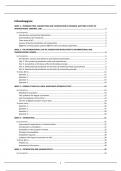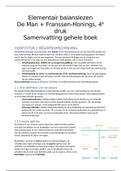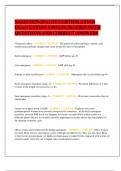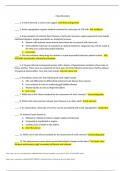College aantekeningen
Jurisdiction and Cooperation in Criminal Matters () - Lecture and Tutorial Notes
- Instelling
- Universiteit Van Amsterdam (UvA)
These are the lecture and tutorial notes of the course Jurisdiction and Cooperation in Criminal Matters for the academic year of (last class on date of upload). This course is part of the master International and Transnational Criminal law (period 1). The tutorial notes include the answers to the ...
[Meer zien]













